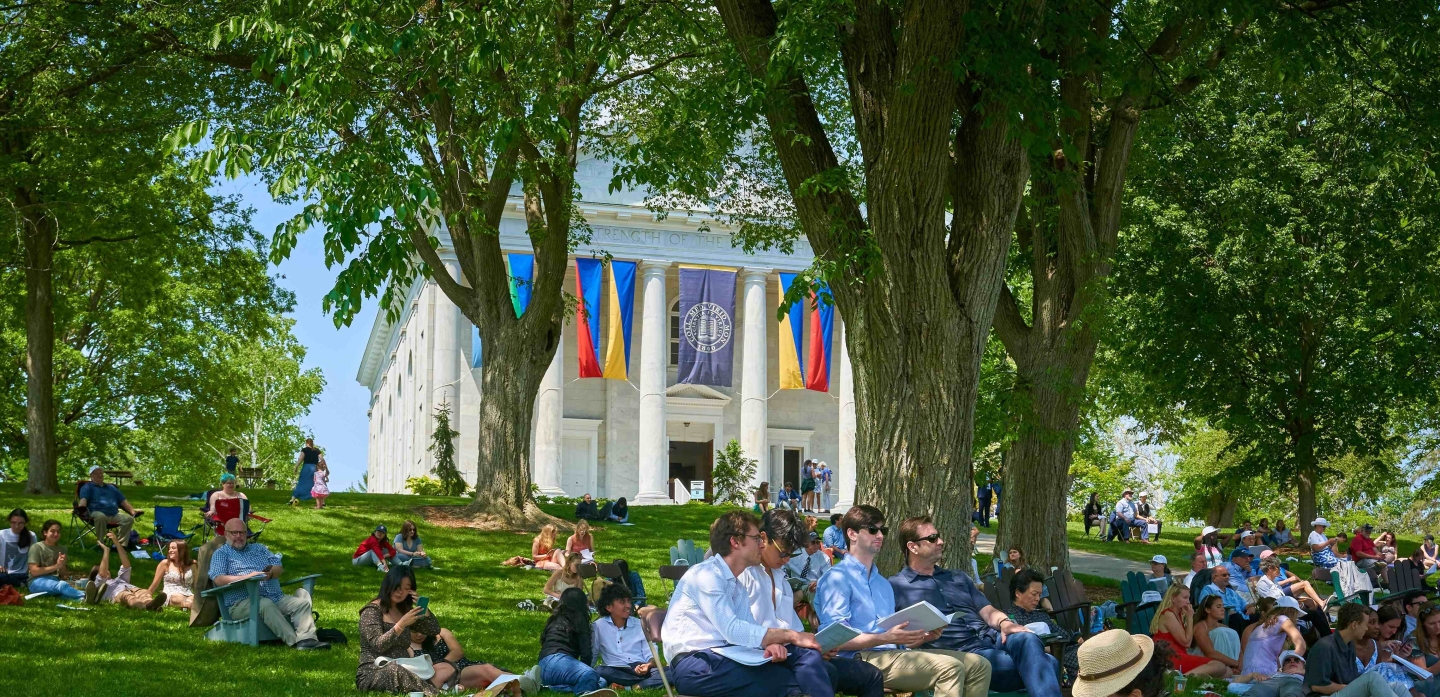
Commencement
Program of Commencement Events
Ross Dining Hall
Breakfast
For graduates and their guests.
McCullough Student Center, Wilson Hall
Phi Beta Kappa Induction Ceremony
Phi Beta Kappa inductees and their guests are also invited to a continental breakfast at 8:30 a.m. in the Grille, located in McCullough Student Center across from Wilson Hall.
Proctor and Ross Dining Halls
Celebratory Luncheon for Seniors and Their Guests
Middlebury Chapel
Baccalaureate Service
President Ian Baucom will address the senior class. All are welcome to attend. Seating is available on a first-come, first-served basis. Seating will begin at 1:00 p.m. and conclude at 2:00 p.m. to allow staff to prepare for the ceremony.
A live broadcast will be available in Wilson Hall, located in the McCullough Student Center. The chapel is not air-conditioned; however, Wilson Hall features cushioned seating and air conditioning.
Ross Dining Hall
Dinner
For graduates and their guests.
Ross Dining Hall
Breakfast
For graduates and their guests.
East of Old Chapel
Commencement Procession Lineup
Procession Begins
Central College Lawn
Commencement Exercises
A live broadcast of the ceremony is provided in Wilson Hall in McCullough Student Center for those who wish to be indoors.
A live stream link will be posted to this page a few days before the event.
Middlebury Chapel Lawns
Commencement Luncheon
A picnic luncheon immediately follows the ceremony.
Rain sites: Proctor, Ross, and Atwater Dining Halls
Graduate Departure
Graduates are required to vacate their dormitory rooms no later than 6:00 p.m. on Sunday. This deadline must be enforced so that rooms may be prepared for Reunion.
